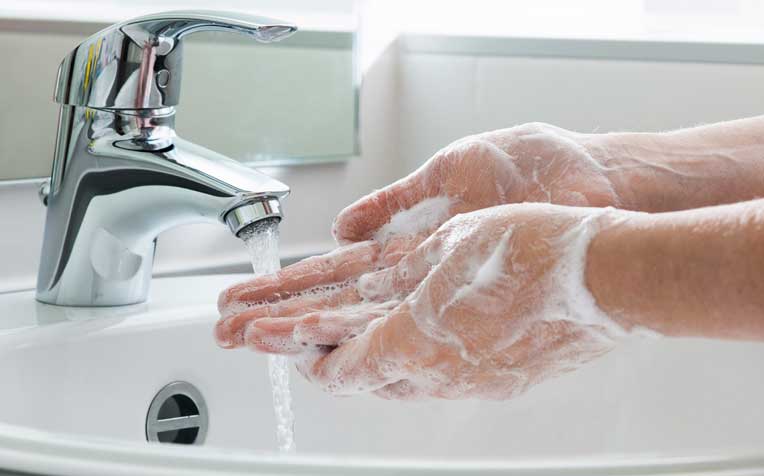HealthXchange will NEVER ask you to transfer money over a call. If in doubt, call the 24/7 ScamShield helpline at 1799, or visit the ScamShield website at www.scamshield.gov.sg.
HFMD: Treatment and Prevention Tips

HFMD can be prevented by washing hands regularly.
Hand, Foot and Mouth Disease (HFMD): Treatment
There is no specific treatment for HFMD, but medication is available to relieve the fever and pain. Resting at home and drinking plenty of fluids will aid the recovery process. If mouth ulcers are a problem, a soft diet with food like porridge may be easier to consume.
“Watch out too, for other symptoms as hospitalisation may be required for more severe cases or complications,” said Dr Ng Chung Wai, Senior Consultant and Family Physician, SingHealth Polyclinics (Outram), and Chairman, SingHealth Polyclinics Infectious Diseases and Infection Control Committee, a member of the SingHealth group.
Breaking the chain of transmission is also crucial. You can help prevent the spread of HFMD to others by staying away from public places, avoiding close contact with family members, keeping your belongings such as towels, clothes and eating utensils separate and only going back to work once all the blisters have dried up.
What you should know about HFMD
HFMD: Prevention Tips
- Wash hands regularly and observe general hygiene measures
- Avoid exposure to nasal discharge, saliva, faeces or body fluids of an infected person
- Do not share eating utensils
- Keep toys, books, eating utensils, towels and clothes separate
- Avoid close contact such as hugging and kissing
- Clean and disinfect toys and appliances thoroughly if previously used by someone with HFMD
What should I do if I contract HFMD?
The disease is self-limiting, which means it will usually clear up in five to seven days. During that period, you should ensure you get enough rest and fluids. Change to a soft diet if mouth ulcers cause too much pain.
What HFMD complications should I look out for?
- Shortness of breath
- Drowsiness and disorientation
- Severe headache
- Neck stiffness
- Vomiting
- Poor oral intake
- Fits
See a doctor immediately if such signs are observed.
Ref: M19
Contributed by
Related Articles
Conditions & Treatments
Public Events
Get the Health Buddy App
© 2025 SingHealth Group. All Rights Reserved.


















 Get it on Google Play
Get it on Google Play